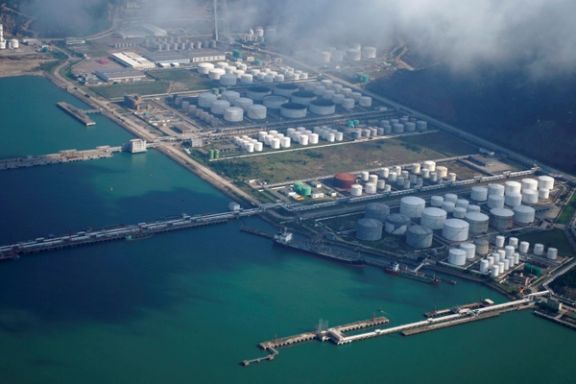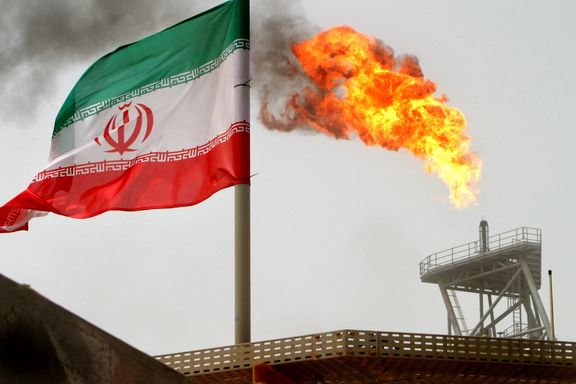Iran Reducing Oil Exports To China, Demanding Higher Price - Reuters

China's oil trade with Iran has stalled as Tehran withholds shipments, demanding higher prices from its top client, Reuters quoted refinery and trade sources as saying.

China's oil trade with Iran has stalled as Tehran withholds shipments, demanding higher prices from its top client, Reuters quoted refinery and trade sources as saying.
The cutback in Iranian oil, which makes up some 10 percent of China's crude imports and hit a record in October, could support global prices and squeeze profits at Chinese refiners.
Early last month Iranian sellers told Chinese buyers they were narrowing discounts for December and January deliveries of Iranian Light crude to between $5 and $6 a barrel below dated Brent, five traders who handle the oil or are familiar with the transactions told Reuters.
Those deals had been struck in November at discounts around $10 a barrel, the traders told Reuters.
The exclusive report did not say how Iran was going to manage its finances, as China is almost the sole buyer of its oil since the United States imposed full sanctions on Iranian crude exports in 2019.
Already Iran faces revenue shortfall despite shipments to China that the Biden administration allowed to surge from a low of around 250,000 barrels per day in 2019 to above one million barrels in 2023. Iran’s currency has fallen to near historic lows, trading at 510,000 rials per dollar, a 12-fold decrease since 2018.
In late December, Iran announced $26.5 billion in oil export revenues in nine months since March, but Iran International’s analysis indicated the number was closer to $22 billion.

A China-based trading executive told Reuters, "This is considered as an extensive default and the order to hike prices apparently came from the headquarters in Tehran, as they're holding back supplies also to the intermediaries."
An executive at a Chinese middleman that procures directly from Iran said Tehran was "holding back some shipments", leading to a "stalemate" between Chinese buyers and Iranian suppliers.
"It's not clear how things would end," this executive told Reuters. "Let's wait a bit and see if refineries are willing to accept the new price."
China has saved billions of dollars buying often deeply discounted oil from sanctioned producers Iran, Venezuela and, more recently, Russia - countries that supply almost 30 percent of China's crude imports.
The abrupt move, which one industry executive called a "default", could also represent the backfiring of an October US waiver on sanctions of Venezuelan oil, which diverted shipments from the South American producer to the US and India, elevating prices for China.
'TEAPOTS' SQUEEZED
It is not clear how extensive Iran's cutbacks to China are. At least one buyer has accepted higher prices: a Shandong-based refiner bought a cargo late last month at discounts between $5.50 and $6.50 on a delivered ex-ship basis, two traders said.
The discounts could narrow further, as the latest offer heard was $4.50, the traders said. Last year's average discount for Iranian Light, a key grade China buys with a high middle-distillates yield, was about $13, traders say.
"The buyers are still struggling to find a solution as the new prices are too high," said a Shandong-based buyer. "But since they have limited choices and the Iranian side is very tough, the room for price negotiations is difficult and is not favoring Chinese buyers."
China's smaller independent refiners, called "teapots", have become Tehran's top clients since first buying Iranian oil in late 2019. They replaced state-run refiners, which stopped dealing with Iran over concerns about falling afoul of US sanctions.
Teapots absorb about 90% of Iran's total oil exports, usually passed off as oil originating in Malaysia or the United Arab Emirates, trade sources say.
Amid the tussle over prices, Iran's overall exports and China's imports from Iran have fallen.
China imported about 1.18 million barrels per day (bpd) of Iranian oil last month, down from 1.22 million bpd in November and 23 percent off October's record 1.53 million bpd, tanker tracker Vortexa Analytics reckons.
That represents the bulk of Iran's global seaborne crude exports, which another tracker, Kpler, estimates at 1.23 million bpd for December, down from 1.52 million bpd in November. Floating storage off Iran and nearby waters rose by about 2 million barrels to 15.5 million barrels over the past week, Kpler says.
"The Iranians want to play catch-up in prices with (Russia's) ESPO. But they don't fully realize the extent of sanctions on Iranian oil is different from that on Russian," said a trading manager at an independent refiner.
Washington has sanctioned more than 180 people and entities related to Iran's petroleum and petrochemical sectors since 2021, identifying 40 vessels as blocked property of the sanctioned entities.
With Exclusive reporting by Reuters